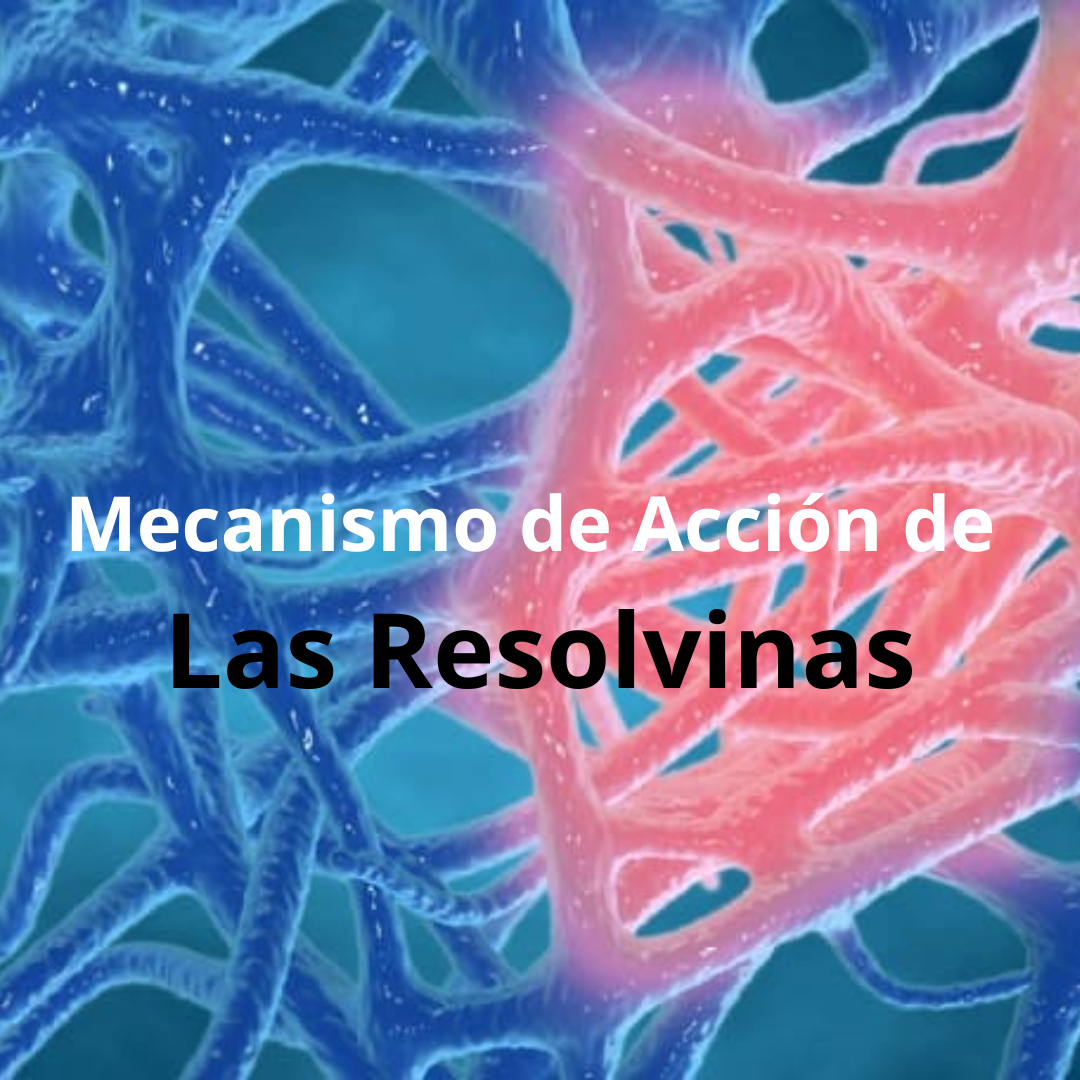Resolvins are a class of molecules present in our body, along with others, that play a crucial role in resolving inflammation and promoting homeostasis (return to normal) in the human body after an inflammatory process. Our body produces them naturally. When an injury or infection occurs in the body, an inflammatory response is triggered as part of the body's healing and defense process. A complex biochemical process is set in motion, with two main phases:
- Acute Phase: The body becomes inflamed around the injury as a defensive mechanism.
- Resolution Phase: The body has the capacity to resolve the inflammation itself (remove that defensive barrier) and heal the injury
Inflammation must be properly regulated and resolved to prevent it from becoming excessive and causing damage to our tissues. If we don't resolve inflammation quickly and naturally, we can go from a localized inflammation to chronic inflammation—a permanent, usually low-grade inflammation that prevents effective healing of the injury and persists over time. Many foci of inflammation that aren't properly resolved can degenerate into something known as chronic systemic inflammation, with serious consequences for our health. But we're not going to talk about that now; we're going to focus on:
What do Resolvinas do?
Simply put, they function like a great conductor by regulating inflammatory cells, promoting the removal of dead cells and bacteria (cleansing our tissues), and helping to restore tissue normalcy so that it can heal naturally. The mechanism of action of Resolvins involves a series of very complex biochemical processes and cell signaling: Interaction with specific receptors : Resolvins interact with specific receptors on cells of the immune system and other tissues to trigger cellular and molecular responses that promote the resolution of inflammation. Inhibition of inflammation: Resolvins exert their anti-inflammatory action by inhibiting the production of proinflammatory mediators, such as cytokines and leukotrienes, as well as reducing the adhesion and migration of leukocytes to sites of inflammation. Stimulation of phagocytosis (tissue clearing) and the removal of dead cells and bacteria: Resolvins promote phagocytosis, a process by which immune system cells, such as macrophages, engulf and remove foreign particles, dead cells, and bacteria, thus helping to clear the inflammatory site. Modulation of cellular activity and intracellular signaling: Resolvins can modulate the activity of various intracellular enzymes and proteins, including those involved in the regulation of inflammation, immune response, and cell survival. Promotion of inflammation resolution and tissue repair: In addition to their anti-inflammatory action, resolvins also promote the resolution of inflammation by promoting the repair and regeneration of damaged tissues. Modulation of gene expression: Resolvins can influence the genes of inflammatory cells and other cell types, leading to changes in protein synthesis and cell function. But, beware, with age, the proliferation of poorly resolved inflammatory episodes, poor lifestyle habits, etc., the body loses Resolvins and therefore its natural ability to resolve inflammation. That is why it is very important to maintain the level of Resolvins in our body and this is achieved with products such as Longevitas P-Resolvins , rich in Resolvin precursors, which have been scientifically proven to increase our body's natural production of Resolvins. In short, the mechanism of action of Resolvins involves a series of molecular and cellular processes that act together to promote the resolution of inflammation, limit tissue damage and restore normality in the human body. Their ability to modulate the inflammatory response and promote tissue repair makes them a great ally with therapeutic potential in a variety of inflammatory and chronic diseases. It is extremely important to keep Resolvins active and at maximum production and effectiveness, and for that, Longevitas P-Resolvins are a perfect ally.



